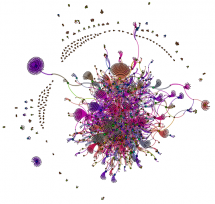Course Program:
Cmpe58H: Social Semantic Web Syllabus


In recent years online participatory applications such as Wikipedia, LinkedIn, Facebook and weblogs have gained wide popularity. These applications support user generated content that is often further enriched with tags, comments, ratings provided by other users. Such applications have transformed novice users into content publishers and have resulted in some highly successful applications such as Wikipedia. Such applications are widely referred to as Web 2.0 applications. One shortcoming of these environments is that their content is mostly human interpretable.
Semantic Web technologies allow semantically structuring content so that it is machine interpretable. These technologies have been around for over a decade, yet their wide scale impact is only recently beginning to emerge. Web 3.0 is a term used to describe applications that move beyond Web 2.0 by employing Semantic Web technologies. These applications intend to support user generated content that is machine interpretable. In another words, Web 3.0 aims to create an executable Web. The challenge here is maintaining a participatory and therefore a useable environment while also supporting semantically structured content.
Tim BernersLee (The inventor of The World Wide Web) recently coined a new term Giant Global Graph (GGG) to describe the Web on the horizon. This Web will have richly interconnected semantic content along with information about the participants and their social graph. This view emphasizes the significance of the participants and therefore their explicit representation on The Web. Online social networks have become a target of research based on traditional social network analysis methods.
How we do things in this course
his course will examine the combination of applying Semantic Web and Online Social Networks in collaborative spaces. Social and semantic information spaces will be created, discussed, and analyzed with the tools and technologies available in these areas. The course will be conducted as a seminar, where participants will have weekly reading assignments that will be discussed in class.
During this course, we make a collective effort to learn and expand our knowledge about representing and understanding social networks and the representation of domains of knowledge on the web (semantic web).
During our inquiries, we will use digital platforms as a collective space for expressing our ideas and sharing information.
Our reading list: Every week we focus on various topics, which involves reading scientific articles. Details will be announced in class.
Weekly activities
- Reading and discussing articles
- Examining semantic web data and applications
- Writing and following each other’s blogs (Use an RSS reader to follow blogs and comments)
- What’s new and exciting? There is always news related to our topic. Keep your eyes and ears open and share. Every week we will start our discussions with this item.
Semester Project
- There will be a semester group project
- Project concept and progress presentations will be made
Communication
In this course there is a lot of communication regarding the topics we are investigating, such as:
- Slack: Will be announced in class.
- Collective space: Will be announced in class.
- Collective repository
This communication style makes our inquiries deeper and much more enjoyable.
During this course we will be using a collective repository that supports versioning, collective documentation, and issue tracking.
The address will be accessible to registered students.
Important Note:
Participation means active participation. Everyone is expected to be vocal during class sessions. Especially related to the topic of the week. Articles are to be read, summarized, and discussed during the course.
Reference Books:
We will be reading scientific literature that will be shared during first class.
Grading:
| Activitiy | % |
|---|---|
| In class and online participation | 40 |
| Project | 40 |
| Exam | 20 |
